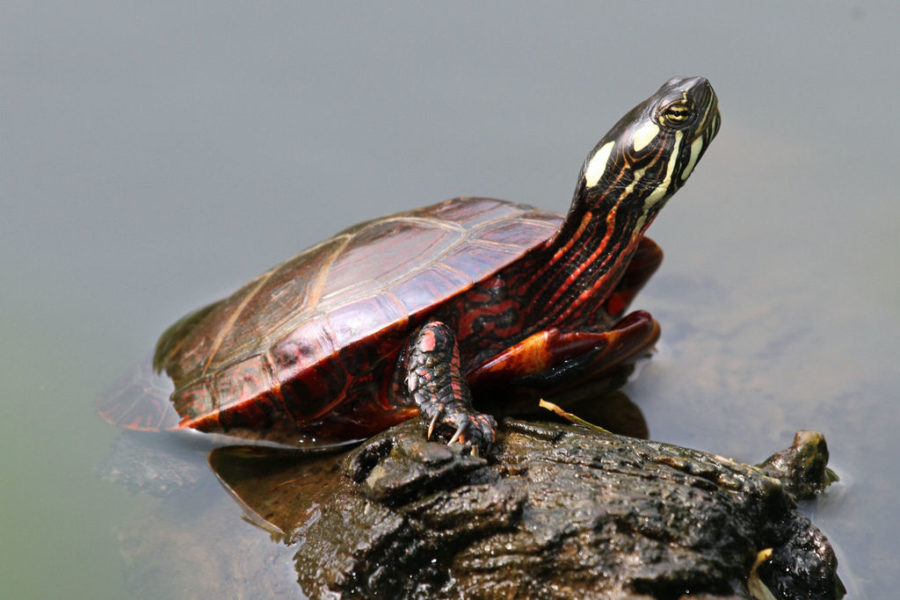Professor researches affect of climate change on painted turtles
TURTLES
April 8, 2019
Nicole Valenzuela is a professor of ecology, evolution and organismal biology at Iowa State. She is also a biologist raising awareness about the affects that climate change will have on many reptiles, specifically the painted turtle.
Valenzuela began research on the painted turtle in 2009 and concluded in 2017. The research studied the repercussions of fluctuations in temperature caused by climate change. For painted turtles, these temperature fluctuations, as well as wider oscillations in temperature, are extremely dangerous.
The sex of Painted turtles, like many crocodilians, is dependent on temperature during their development inside eggs. Eggs exposed to cooler temperatures produce males and eggs exposed to warmer temperatures produce females. Valenzuela said the true danger for the painted turtle is the elimination of the male painted turtle. If there are no male turtles, there is no opportunity for reproduction and the population will cease to exist, Valenzuela said.
To understand these temperature changes, Valenzuela and her co-authors exposed eggs to temperatures in three different turtle populations: Iowa, Nebraska and Canada. Valenzuela said there are variations in these populations in how they produce males and females. The proportion of males and females was also recorded for each set of eggs.
In previous studies, eggs exposed to constant temperatures in a laboratory revealed that about four degrees Celsius can create the difference between a nest that produce males and a nest that produces females. However, these experiments did not account for the temperature fluctuations in natural nests.
The following studies found that simple fluctuations caused sex reversal. Valenzuela wondered if similar fluctuations caused sex reversal in natural nests, therefore counteracting the effects of warmer temperature averages. However, this was not the case.
“We won’t see the reversal at the warmer temperatures,” Valenzuela said. “There is no good news in the end.”
Valenzuela’s research thereafter confirmed eggs exposed to cooler temperatures would produce males, while eggs exposed to warmer temperatures would produce females. Extreme temperature fluctuations caused embryos to die.
“There is no one species that has any more of right to exist than any other,” Valenzuela said. “The painted turtle, though, are very important to study as a model turtle.”
The painted turtle is common all over the United States and Canada. Valenzuela’s recently published research confirms that the painted turtle is at risk of population decline if the predicted climate change fluctuations continue in natural nests.
















